Saturday evening, as the sun was setting and the fog was settling in, this is what K and I saw:
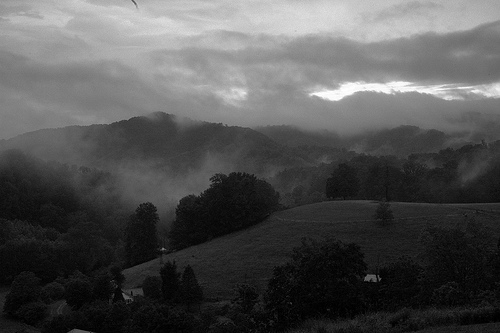
Getting to that moment was just as enjoyable as the moment itself, though.
We set off Saturday morning — after my Praxis test — on a trip to the mountains: Asheville. Hippy-ville, land of the sky, where the patchouli flows like water.
Our first stop was actually a good bit north of Asheville, in Hot Springs, at the annual Bluff Mountain Festival. Bluegrass, old-time music, clogging — a fine festival.
K and L danced and twirled
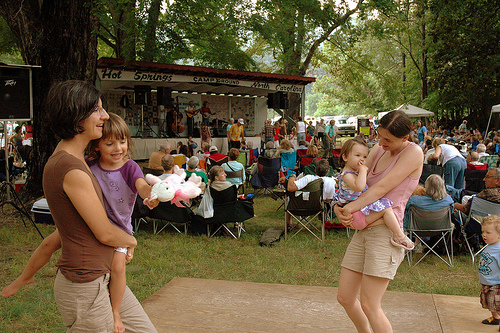
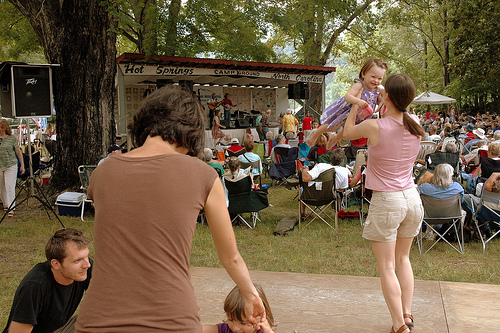
L made a new friend,
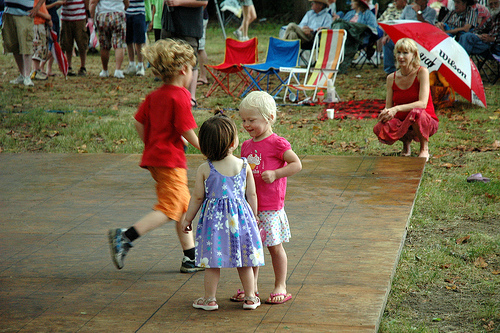
only to discover that the new friend was not wild about hugs.
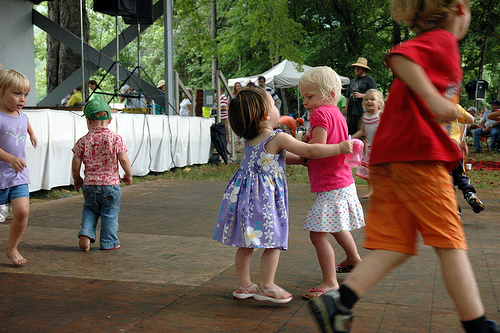
After the rain finally chased us away, we went to stay with friends in Madison county — friends who live on the top of a mountain and keep bees:
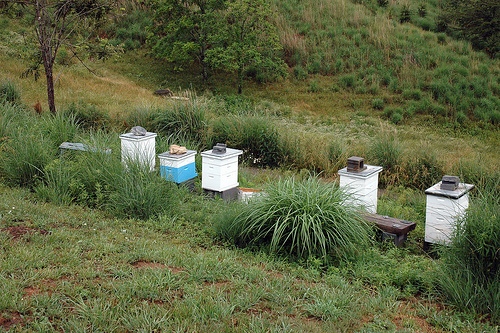
We spent the evening as all evenings should be spent: on the deck, surrounded by nature and friends, without a mosquito to be found.
I took the time to talk with someone knowledgeable about bees about what’s going on with the bee population in the States. It’s fairly frightening. One word: monoculture:
Many worry that what’s shaping up to be a honeybee catastrophe will disrupt the food supply. While staple crops like wheat and corn are pollinated by wind, some 90 cultivated flowering crops – from almonds and apples to cranberries and watermelons – rely heavily on honeybees trucked in for pollinization. […]
For many entomologists, the bee crisis is a wake-up call. By relying on a single species for pollination, US agriculture has put itself in a precarious position, they say. A resilient agricultural system requires diverse pollinators. This speaks to a larger conservation issue. Some evidence indicates a decline in the estimated 4,500 potential alternate pollinators – native species of butterflies, wasps. and other bees. The blame for that sits squarely on human activity – habitat loss, pesticide use, and imported disease – but much of this could be offset by different land-use practices.
Moving away from monoculture, say scientists, and having something always flowering within bee-distance, would help natural pollinators. This would make crops less dependent on trucked-in bees, which have proved to be vulnerable to die-offs. (Christian Science Monitor)
Once the ladies came out to the porch, though, we changed to less depressing topics, but not for long: “Who knows when the Girl will wake us” we said, trotting off to bed around eleven.
L woke us up at her usual hour, which meant we got to see a mountain sunrise:
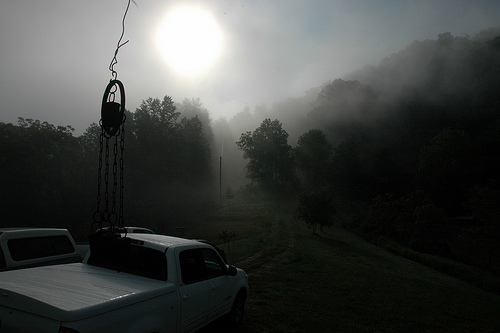
L played with the dogs for a while. Our friends have four dogs, but only three of them were interested in L.
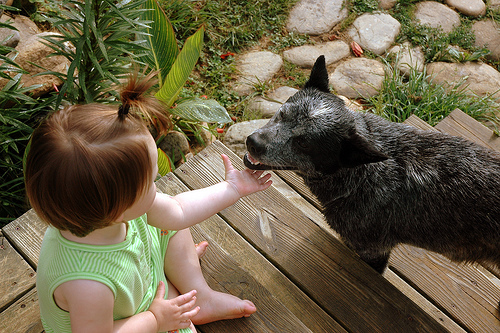
She got a face-full of tail a couple of times but took it like a trooper and insisted on staying with the dogs.
It was wonderful seeing how the dogs sensed L’s fragility and were so gentle with her. They didn’t attempt to jump on her and would gently approach to lick her in the face — which she loved and showed the baby sign for “more” again and again.
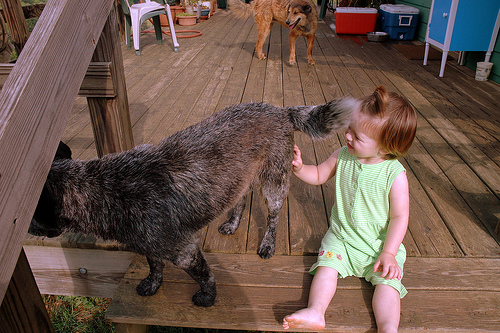
After breakfast, we drove back down to Asheville, to visit other friends, who also have a dog.

We were pleasantly surprised at how patient all the dogs were with L. She’s so obsessed with hugging animals that she’s got an arm-full of scratch marks from where she shares the love with our cat a little too forcefully.
Finally, we met still more friends at the NC Arboretum for walk.
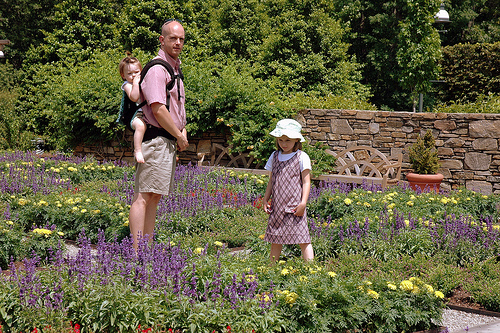
It was a busy weekend, undoubtedly a foretaste of what’s our trip to Polska is going to be like — a trip that is rapidly approaching.
Too rapidly, in some respects.
We leave in two weeks.
0 Comments